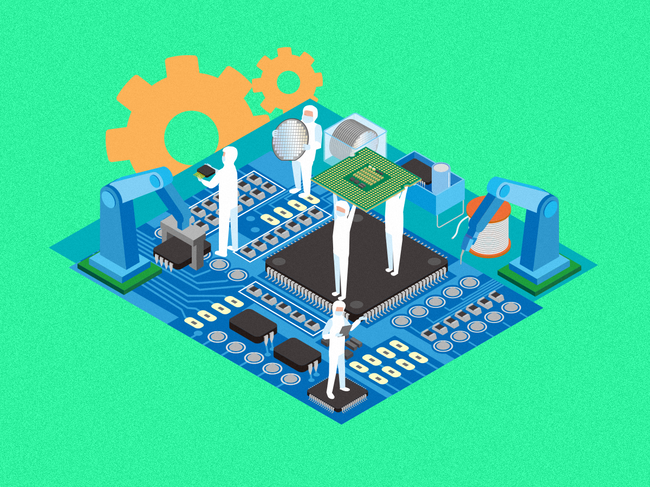 ETtech
ETtechThe company has tied up with two Indian manufacturers to develop capabilities for it and plans to also export these complex machines in the future. So far, the Tatas imported these from China.
 ETtech
ETtech"The Tata Group is testing these machines in a staged manner at their Hosur facility," a person aware of the developments told ET. "Part of the objective is to grow more of its local capability because the company is not just looking to build enclosures, it wants to develop the ecosystem in the country. These machines are just one of the many inputs that go into making a component or an enclosure that the company is looking at to reduce its exclusive dependence on certain parts."
Experts ET spoke to said this could be a huge boost to the Indian manufacturing story as well.
Discover the stories of your interest

Indian manufacturers are at different levels of capability and maturity to execute the plan, the source quoted earlier said.
This is part of the company's 'global plan' to reduce dependence on certain low tech parts before moving on to more complex parts in a bid to diversify and de-risk from global supply chain shocks while building the manufacturing ecosystem in the country.
Queries sent to the Tata Group remained unanswered as of press time Thursday.
While Computer Numerical Control (CNC) machines are used in abundance in India in a plethora of sectors, when it comes to using CNC machines for precision components, domestic manufacturers currently do not have the capability, the person said.
"It is a part of everybody's priorities - the government, manufacturers like the Tata Group, and the companies themselves to diversify and de-risk the supply chain," this person said.
An official said the Tata Group has around 40 lines at their Hosur facility.
The Tata Group has tied up with a company in Pune and another in Bengaluru, the official said.
While the plan to export is on the Tata Group's agenda, it might take some time before becoming an on-ground reality, one of the sources said.
"It's a maturity curve," he explained. "India has a while to go before the export happens. First, the Tata Group must be able to make them good enough for them to use. A lot of machines from India do go overseas, but this one again is about precision stuff, which is so complicated, so it's a maturity curve that will take time."
"Development of key capital goods is extremely important for the industry," Pankaj Mohindroo, chairman of industry body India Cellular & Electronics Association (ICEA) told ET. "We are working on developing India as a major assembling and components hub for electronics’ capital goods."
















 Get Unlimited Access to The Economic Times
Get Unlimited Access to The Economic Times
